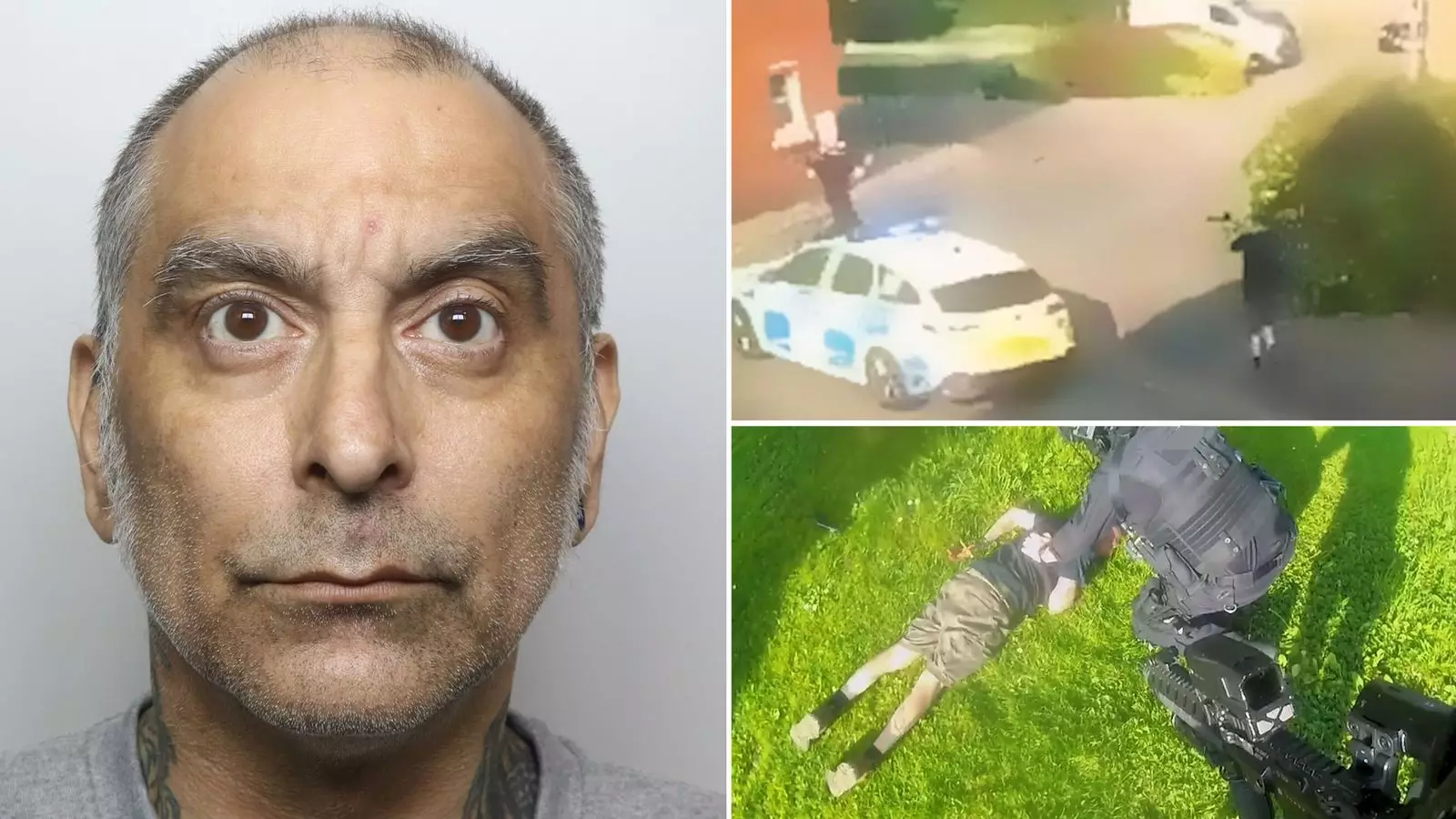In recent coverage of a violent incident involving a police officer shot with a crossbow, society is often quick to rally behind law enforcement. Yet, such narratives tend to oversimplify the nuanced reality of public safety and the role of policing in our communities. The incident in Downley, Wycombe, where PC Curtis Foster was wounded, underscores the inherent dangers law enforcement officers face and raises critical questions about the effectiveness and boundaries of police intervention. While the police their duty to protect, they operate within a moral and legal framework that should prioritize restraint and accountability, especially when escalating violence is at play. Celebrating such events without critique risks deifying authority at the expense of civil liberties and human rights.
The Thin Line Between Justice and Excessive Force
The narrative surrounding Jason King’s nine-year imprisonment paints him as a dangerous criminal, a villain, and a threat to society. Indeed, his actions — firing a crossbow at officers, stabbing a neighbor, and threatening police — are undeniably alarming. However, the broader discussion must consider whether the response was appropriate or if it veered into overreach. The use of deadly force, including the officer’s shooting of King with a firearm, warrants scrutiny. Is it always justifiable to escalate to gunfire, especially considering that King was actively fleeing? Or do such moments reveal a systemic tendency to prioritize force over de-escalation? These are the questions central to a fair and honest debate on law enforcement’s role. As a society, we should question whether the penal system, even when dealing with violent offenders, sufficiently emphasizes rehabilitation and community safety rather than raw punishment.
Community Safety Versus Public Rights
The official statements emphasize that the community in Downley is now safer because of King’s incarceration. But this perspective often neglects the long-term consequences of punitive justice. A nine-year sentence, with an additional three-year license extension, may serve as a deterrent, but it does little to address the root causes of violence, mental health struggles, or social inequalities that often underpin such incidents. When communities are mobilized around fear rather than understanding, we risk creating a cycle where the focus is on incapacitation rather than prevention. The question becomes: do these harsh sentences genuinely foster safer neighborhoods, or do they deepen divisions and hinder efforts to understand the complexity of violent behavior?
Guardians or Enforcers? The Ethical Dilemma
Law enforcement officers operate at a crossroads where they must balance authority with compassion. The resilience and bravery displayed by PC Foster and his colleagues are undeniable. Yet, the broader issue lies in the culture that normalizes violence as the primary tool for resolving disputes. The incident illustrates how quickly a situation can escalate from a neighborly dispute to a life-threatening encounter. Officers are often forced into difficult choices with limited options, but society must question whether current training and policies adequately prepare them for these complex moments. An overemphasis on militarized responses risks transforming police into an armed force more akin to an occupying army than community guardians. This tension is at the heart of the ongoing debate over policing models, police militarization, and the importance of community-based approaches.
Reimagining Justice: Beyond Punishment
The case of Jason King exposes the cracks in a justice system heavily skewed toward detention and punishment. While protecting the public from violent offenders is paramount, long-term violence prevention requires more nuanced intervention strategies. Investing in mental health services, community engagement, and restorative justice initiatives could reduce incidents rather than merely punish them after they occur. Firearms and crossbows are merely tools; the underlying issues are social and psychological. Society’s obsession with justice as retribution often neglects restorative paths that could mend broken lives and prevent future violence. Moving toward a humane, comprehensive approach is essential if we truly aim to cultivate safe and resilient communities.
While the incident in Wycombe highlights the bravery of officers under threat, it also forces us to confront uncomfortable truths: Are we investing enough in prevention? Do our punitive measures serve justice or merely perpetuate cycles of violence? As citizens and policymakers, we must critically assess whether the current model of policing and justice genuinely upholds the principles of fairness and compassion we aspire to.


Leave a Reply